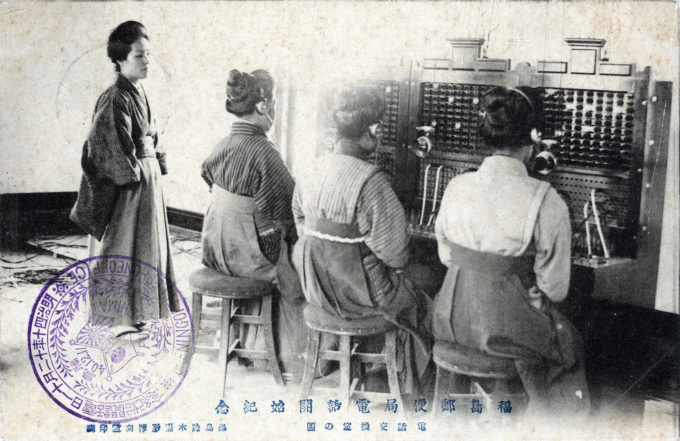
“Opening of the telephone office” commemorative postcard, Fukushima City, Fukushima Prefecture, December 11, 1907. A supervisor oversees the work of switchboard operators only five years after AT&T first introduced the standard PBX switchboard (public branch exchange) in the U.S.
See also:
50th Anniversary of the Telephone, 1926.
60th Anniversary of the Telephone commemorative postcards, 1936.
Telephone service in Japan started in the 1870s, and by the 1890s, public-exchange operators had become essential components of the growing telecommunications infrastructure, particularly in large cities like Tokyo and Osaka.
Telephone operators were introduced shortly after the first telephone exchanges were set up. Initially, most operators were men, but women were increasingly recruited because of the belief women could better practice the precise manual dexterity and courteous communication skills required of the job. By 1910, women were counted the majority among operators in the industry, connecting the country’s estimated 37,000 telephone subscribers at the time.
The introduction of telephone services in Fukushima was more than just a symbolic nod toward Meiji era modernization. It marked the region’s technical integration into the expanding web of industrial, scientific and social advancements introduced on a national scale as Japan rapidly modernized.
Fukushima was (and remains) a region with a strong agricultural base. The telephone, even if only one telephone could serve the needs of an entire village, allowed farmers, merchants, and businesses to communicate among each other more efficiently, promoting sustained growth in trade and commerce, principally in silk production, which was vital to Fukushima’s economy at the time.
Telephone service enabled faster communication too between local and national government offices, improving governance and coordination in the region, especially in times of disaster in an area prone to earthquakes and heavy snowfalls.

